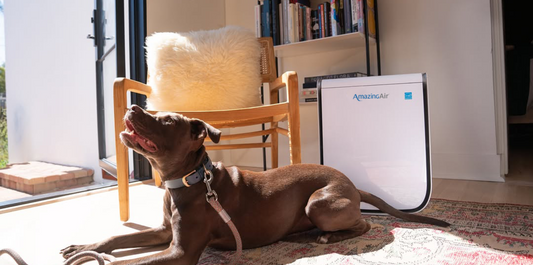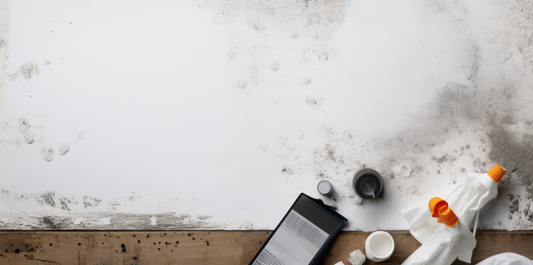It is something you always do, but never consciously think about: breathing. Every day we breathe about 11,000 litres of air in and out. That is an unprecedented amount. But what do you actually know about the air you breathe? What is air anyway? And what happens when air is polluted?
What is air?
When you think of 'air', you might think of a clear blue summer sky or imposing cloud fields. But air is more than that. Air is all around us: without it we cannot survive. But what exactly is air? What is air made of? Air is actually a mixture of gases and chemical substances. Dry air consists of approximately:
- 78% nitrogen
- 21% oxygen
- 1% water vapour and carbon dioxide
(In)visible air pollution
The air around us is polluted by a mixture of dust particles and gases, such as ozone. On warm days with no wind, you may see that the city is shrouded in smog. This is an increased amount of pollution in the air. An example of this is particulate matter. This is caused by, for example, traffic, industry and soot.
Urban air vs. rural air
It is generally believed that the air in rural areas is cleaner than in the cities. After all, in the city, you have traffic that emits all kinds of polluting gases. But in the countryside, the air quality is not much better, if not worse. For example, people who live close to a livestock farm have more respiratory complaints. This is most likely caused by ammonia emissions from livestock farms.
Other factors
Air quality is influenced by many other factors besides weather and traffic. For example, trees also play a major role in air quality. Much research has been done on their purifying effect, but it seems that this effect is minimal. What is certain is that trees cause more dilution and dispersion of air pollution. In short, green ensures air circulation. This mixes the polluted air with clean air. So it works as a kind of filter.
Houseplants as air purifiers
Where trees have an effect on the outside air, houseplants have an effect on the air quality in your home. All plants produce oxygen, but some indoor plants can also absorb harmful substances from the air with their leaves. These substances are then stored in the plant or root, after which they are broken down. They also bring water vapour into the air, improving the humidity in your home.
AmazingAir
Does this mean you have to fill your whole house with plants? No. Even if you turn your living room into a jungle, the effect of houseplants on air quality is negligible. Research has shown that you need between 100 and 1000 houseplants per square metre to make a difference in air quality. For clean indoor air, it is therefore better to choose an air cleaner like the AmazingAir. Curious about the possibilities? Feel free to contact the specialists of AmazingAir without any obligations and find out what they can do for you!




